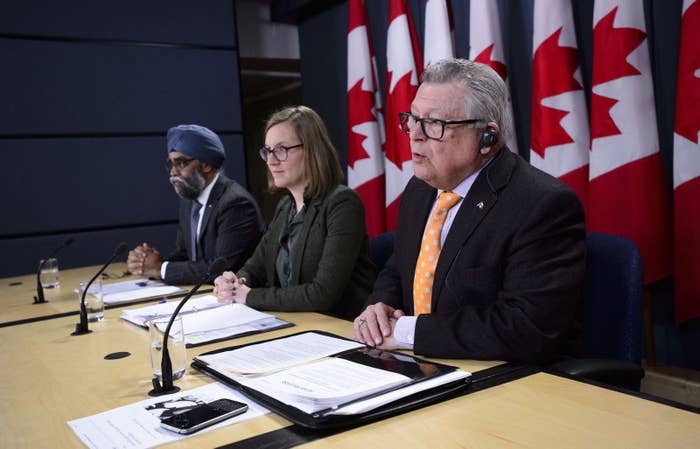
BuzzFeed News and the The Toronto Star are investigating the ways in which political parties, third-party pressure groups, foreign powers, and individuals are influencing Canada’s political debate in the run-up to this fall’s federal election. This is the second report. The first report can be found here.
A clear majority of Canadians believe foreign governments — including its closest international ally — will attempt to “influence” the country's 2019 federal election.
New polling conducted by Abacus Data and released exclusively to BuzzFeed News and the Toronto Star shows 60% of Canadians believe it’s likely foreign governments will try to influence the results of this October’s general election.
Where do most expect that influence to come from? Canada’s closest neighbour and ally, the United States.
Most respondents (69%) said it was either moderately, highly, or very highly likely the US would attempt to influence the election, rating it as likely as interference from China.
Abacus CEO David Coletto said that Canadians recognize the US has as much interest in Canadian affairs as Beijing.
“The US has an interest in making sure that our government aligns closely with them as our number one trading partner and security partner, but I think [Canadians] also recognize other global powers are also looking to influence our allies and alliances as well.”
Russia, which has been accused of active interference in multiple western democratic elections including the 2016 U.S. presidential, followed with 65% of respondents perceiving them as a threat.
“Influence” covers everything from a public endorsement — or a 140-character presidential put-down — to more serious clandestine activity.
The Abacus online poll was conducted between Jan. 30 and Feb. 5, with 2,500 Canadians aged 18 and over. Abacus put the margin of error at plus or minus two percentage points, 19 times out of 20.
In 2017, Canada’s electronic intelligence agency warned parliamentarians that they expect it’s “very likely” hackers will target Canada during the 2019 election.
While the Communications Security Establishment (CSE) said it's yet to observe hostile nations attempting to influence Canada’s domestic politics, it’s not a given they won’t in an election year. And the agency is expected to release an updated threat assessment in the coming weeks.
CSE is one of several law enforcement, intelligence and civilian agencies that have been tasked with safeguarding the 2019 vote, including detecting hostile nations’ attempt to meddle in the election.
According to Abacus’ data, Canadians are largely confident that the federal government is up to that task. A full 66% of respondents said they were somewhat or very confident in Ottawa’s ability to prevent “interference” in the federal election, while 34% expressed little to no confidence.
The numbers flipped when respondents were asked about social media platforms. Only 36 per cent said they were somewhat or very confident in social platforms’ ability to prevent foreign interference, while the rest were either not that confident (43%) or not at all confident (20%).
Facebook is acutely aware of concerns and in October announced a Canadian Election Integrity Initiative “to help ensure the platform is a space for authentic civic engagement.” Democratic Institutions Minister Karina Gould is in the midst of conversations with social media companies, including Facebook, about their obligations this election year.
Coletto said Canadians are giving the government “the benefit of the doubt” when it comes to preventing election interference.
“If we had gotten into some of the details and asked them how they feel about specific aspects of the government’s plan [to safeguard the election] they might feel differently,” Coletto said.
“But on the surface, [Canadians] generally think that the government is competent enough on this and there’s less confidence in social media companies to self-regulate.”



